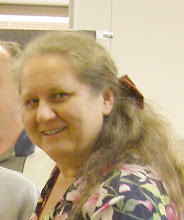The
death of Anna Nicole Smith and its reporting on Wikipedia lead to many acts of cyber-vandalism on the page.
Some people seem to see this as proof that a everyone-free-to-edit environment like Wikipedia is doomed to failure.
On the contrary, it is incidents like this that prove that Wikipedia works. It is resiliant to shocks. Yeah, a few people got about 15 seconds of fame while their tasteless remarks sat on the wikipedia page, but by the time they had emailed or instant-messaged their mates to say "look at what I did", those remarks would have been removed and responsible Wikipedia users would have been taking steps to get the page locked down. If you want to see the vandalism, it's perpetuated by the sites commenting on the vandalism rather than on Wikipedia itself (ironic, really).
Like all human activity, we come up with rules and processes to control undesirable outcomes, like driving on the same side of the road (well, on a country-by-country basis at least), putting the bad dudes in prison, and locking down Wikipedia pages that are subject to vandalism. If new undesirable outcomes start happening, we change our rules and processes. Wikipedia over the course of its existance has evolved to cope with these incidents.
Vandalism on Wikipedia certainly happens and indeed is nearly impossible to prevent, but it recovers quickly from it. While Wikipedia's
recent change patrol (those self-appointed bastions of "what's right on Wikipedia") can be a bunch of over-officious zealots a lot of the time, still they do perform the important social function of ensuring that vandalism is quickly removed (having an underlying verson control system makes it easy to roll back changes -- hurray for IT).
Wikipedia is sustainable precisely because enough people get enough benefit out of it to think they should put something back into it to keep it thriving. People contribute in different ways, whether it be by providing new content or being an editor of existing content or being in the recent change patrol or even
donating cash. It's when people stop making their various contributions that the vandals come in, destroy it all and it loses all credibility. Much like urban neighbourhoods and graffitti and why "zero tolerance" policies actually work.

